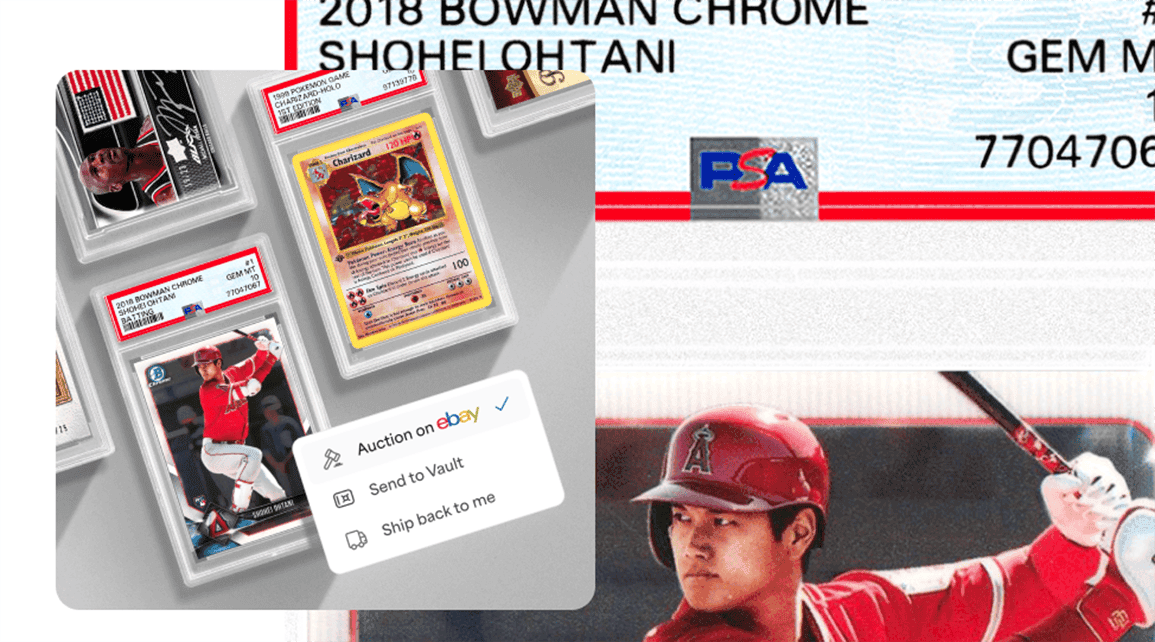On the surface, PSA's new “Offers” program is a simple but major step for customers hoping to quickly flip vaulted cards.
More importantly to some, however, is the groundwork the program has laid for what could become a large-scale "matchmaking" service the hobby’s most dedicated collectors have long wanted.
The idea for the Offers program started during a larger brainstorming session involving Nat Turner, CEO of PSA parent company Collectors, PSA president Ryan Hoge, and several others. The idea PSA could steer collectors directly to their most coveted cards was an attractive one, and the framework for the process has actually been available for more than a decade as part of a feature only a small percentage of PSA customers actually use.
Announced last month, PSA Offers was heavily inspired by the matching program used by set registry users since 2010. Utilizing a “Want List,” set registry users could flag missing items to trigger a notification when those cards are listed to sell at partnered auction houses.
“Our vision for this is to take it broader and eventually be a thing where we could have cards that we’re chasing for our personal collections that are pretty rare, and as soon as these things come up, even when they hit the grading room, we’ll have signaled that card is in the building and it’s about to be processed,” Hoge told cllct. “You could be notified that this card you’ve been chasing for five years has made an appearance.”
“In my case, I’m collecting hundreds of sets. They are all different sets that have missing lines, missing cards that I need to complete,” Turner added. “I go to card shows. I scour eBay. I scour every auction house. I have thousands of hours logged in the past 20 years looking for these cards … If a card that I really want — need, I should say — hits the PSA system, maybe that submitter has no interest in selling it, but maybe they do.”
At a larger scale, the matchmaking service could allow customers to create want lists and even preemptively place offers for cards that don’t officially exist yet.
In an ideal, streamlined process, collectors could be alerted when a card on their watch list hits PSA’s ecosystem in order to place offers for each possible grade ahead of time. Once the card is graded, the original submitter would be met with offers they can accept or ignore.
There isn’t a definitive timeline for when a robust matchmaking program could arrive for all PSA customers. So, for now, the Offers program aims to solve a different problem.
According to both Hoge and Turner, one of the most popular requests from customers is improved liquidity — though many collectors grade and hold onto their submissions, a massive number grade with PSA hoping to flip those cards for cash.
Improving how easily customers can sell their cards, and the speed with which they are paid, has been a major priority for PSA in 2024. The grader took a major step forward when it added the ability to list cards for auction directly to eBay through a PSA-branded storefront earlier this year. PSA improved that feature even further last week when it added the ability to list cards with a "Buy It Now" price.
As of Monday, PSA’s eBay storefront had more than 22,000 cards listed to sell at auction with another 27,000-plus available via Buy It Now.
Creating an in-house option such as the Offers program provides an additional liquidity option for submitters, and also provides a way for PSA to test a matchmaking program at a smaller scale.
For now, offers on vaulted cards are made exclusively by a small network of partnered buyers that have previously been vetted by PSA.
PSA confirmed to cllct the network has fewer than 10 members and is made up of buyers looking to purchase cards at scale for a variety of business models.
“There’s a lot of companies that also need trading cards for their inventory, for their repacks, for their streams, for their local card shop, for their online stores,” Turner said. “They doing this today in a very manual way. They’re going to card shows with wads of cash. They’re buying thousands of packages per week. There’s a lot of things going on, so we started embracing those as potential buyers as well.”
Of all the upgrades made to PSA since an investment group led by Turner acquired Collectors Universe in 2021, a matchmaking service could be the most important to the hobby’s most dedicated collectors — especially as the company has made it an extreme priority to streamline the process for collectors either new to grading or new to the hobby at large.
As 2024 comes to a close, PSA maintains a stranglehold on total market share while often grading between 50,000 and 60,000 cards per day, according to third-party grading tracker GemRate.
According to Hoge, a matchmaking service won’t be for every collector, and that’s not necessarily a bad thing.
“We’re always talking about striking the balance between some of the newer, more novice collectors and our traditional collector that’s a vintage set builder — kind of the bread and butter of how PSA got its start,” Hoge said.
“Not everything is going to appeal to everybody, but we’re always trying to walk a fine line and make sure that we’re building things that will be for some customers while not necessarily shoving it down the throats of everybody.”
Ben Burrows is a reporter and editor for cllct.

